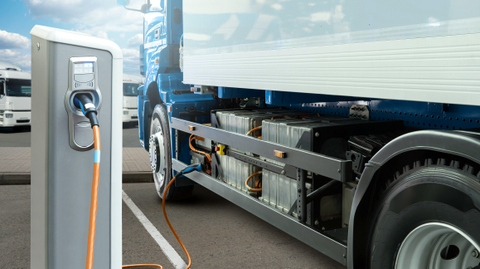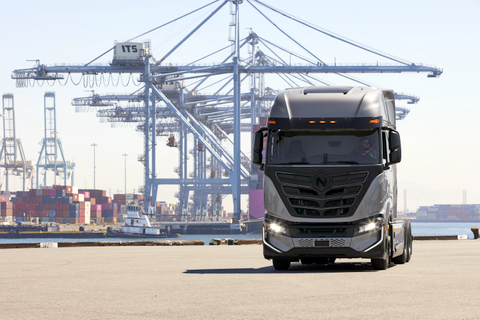EV Fleets Will Change the Face of Trucking Forever
Opinion: Here’s the Roadmap for Commercial EVs
For over 100 years now, trucks have roared down America’s many highways, leaving clouds of dust and exhaust in their wake. They’re a part of the country’s history and will continue to be for decades to come. The need for goods transportation won’t change any time soon–but the way in which we transport things will.
One big development is set to change the face of trucking forever. The industry will never be the same once EV fleets are adopted. Here’s why.
Cost Reduction

While it may seem like they are among the nation’s top polluters, trucking companies have a bottom-line reason to reduce fuel consumption and have been designing innovative ways to conserve gas for decades. For example, aerodynamic improvements lower drag and increase fuel efficiency. Each 2% reduction in drag results in a 1% improvement in fuel economy.
Trucking companies must factor fuel into cost per mile–the trip total divided by the miles driven. Businesses must compute this number to estimate the minimum price they should charge for when planning trips.
Switching to electric vehicles will dramatically reduce the cost per mile. Even hybrid models with a gas engine backup system will spend less on gas with each trip, calling on the reserve only when necessary. The industry can then pass these savings on to consumers currently buried under soaring inflation that keeps getting worse.
New Brand Names
Consumers are sure to see some new names on the road. However, trucking companies can rest assured that familiar favorites will also continue to evolve.
For example, Mack began serial production of its LR electric model in its Lehigh Valley Operations Center in Macungie, Pennsylvania, in 2021. International has its Next Zero line of zero-emissions vehicles that employ electric batteries and hydrogen fuel cell technologies. Volvo Trucks and Freightliner both are producing electric Class 8 to meet customer orders.
However, industry insiders will have some new names from which to choose. For example, companies like Lordstown Motors, Tesla, Rivian, and Nikola have unveiled electric truck concepts and are delivering trucks to customers. Although drivers won’t need a CDL for the lower weight class vehicles, those models can nevertheless fill important roles in complex fleets that manage a combination of large and small delivery services.

The Sound of Silence
Commercial vehicle owners have long had to worry about protecting their ears from damage. Conventional trucks running on fossil fuels produce roughly 100 decibels of noise. Noise over 70 decibels over a prolonged period can impact hearing.
However, electric trucks will reduce this issue. They’re much quieter than other models. Although little research exists on the big rigs, standard EVs run between 43 and 64 decibels, which is well within the safe range.
Smell the Fresh Air
Perhaps the biggest advantage of electric fleets is fewer emissions. The average fossil fuel-powered vehicle spews over 200,000 kilograms of carbon into the atmosphere each year. Electric trucks produce none, letting countless people breathe more comfortably. It’s the same story for diesel particulate matter and smog precursor oxides of nitrogen (NOx).
EV Fleets Will Change Trucking Forever
Electric truck fleets will soon run America’s highways, bringing considerable advantages. This new technology will lead to necessary improvements in the transportation industry. In short, EV fleets will change trucking forever.
